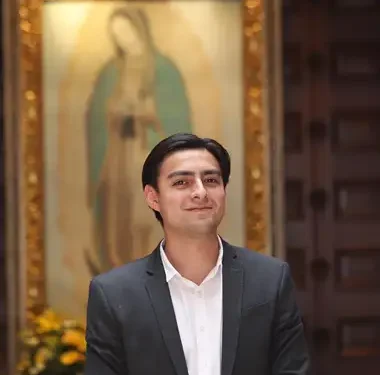By Diego López Colín
Puebla, Mexico, Sep 6, 2024 / 14:35 pm
In September — the month the Catholic Church especially dedicates to the Bible — Mexico, a country with rich linguistic diversity, stands out for its efforts to translate the holy Scriptures into various Indigenous languages.
According to official data, Mexico has 69 national languages — 68 Indigenous and Spanish — which places it “among the top 10 nations with the most native languages and occupies second place with this characteristic in Latin America after Brazil.”
Cardinal Felipe Arizmendi Esquivel, the bishop emeritus of San Cristóbal de las Casas in Chiapas state, has led the Mexican bishops’ initiatives to bring the word of God to Indigenous communities. In an interview with ACI Prensa, CNA’s Spanish-language news partner, the cardinal stated that the Bibles that have been translated are mainly found in communities in the Chiapas highlands.
Arizmendi said that since the first translation in 2003 into Tzeltal, a language spoken by more than half a million people, the Mexican Bishops’ Conference has facilitated the complete translation of the Bible in 2015 into the Tzotzil spoken in the Zinacantán area and of the New Testament into the Tzotzil spoken in the Huixtán region, both in Chiapas.
The prelate said that this year the complete translation into the Tzotzil of the San Juan Chamula area, “spoken by approximately 350,000 people,” has been achieved.
The ecumenical translation of the deuterocanonical books has also been made into Ch’ol, in collaboration with the Bible Societies.
Despite this progress and the fact that there are partial translations made by local priests, the cardinal pointed out that many of these “have not been presented for approval by the bishops’ conference.”
For example, he said that Nahuatl, the most widely spoken Indigenous language in Mexico “with almost 2 million speakers,” has at least six Protestant versions of the Bible, but “there is no Catholic [version]” available.
“For centuries, Catholics gave more importance to liturgical celebrations than concern that the word of God reach these marginalized languages,” the prelate noted.
Translation challenges
Arizmendi explained that one of the greatest challenges in this process is that “many biblical words are difficult to translate into any language.” In the case of Indigenous languages, this is even more complicated, since “one must know the original culture well to find a way for the translation to be faithful to the biblical text and to the local culture.”
For example, the expression “‘the Word became flesh,’ which is an inexplicable mystery in itself, must be translated in such a way that the content is expressed in terms specific to the Indigenous culture,” he noted. The same occurs with other terms, such as “baptism, priest, virgin, Eucharist, bishop, deacon, sin, salvation, etc.,” the cardinal added.
Despite these challenges, Arizmendi emphasized that both the translations already approved and the local versions made in different languages have been “very well received by their speakers.”
Those who speak these languages “feel recognized by the Church and that their culture has value,” which, he added, “has helped them to have more self-confidence and feel that the Church takes them into account.”
This story was first published by ACI Prensa, CNA’s Spanish-language news partner. It has been translated and adapted by CNA.

Diego López Colín is a graduate of the Carlos Septién García School of Journalism (Mexico). He has been a correspondent for ACI Prensa in Mexico since 2023.
Source link : http://www.bing.com/news/apiclick.aspx?ref=FexRss&aid=&tid=66db67c4560a42d0a560d370d749ac9b&url=https%3A%2F%2Fwww.catholicnewsagency.com%2Fnews%2F259159%2Fmexico-making-progress-in-translating-bible-into-indigenous-languages&c=16063535475902946435&mkt=en-us
Author :
Publish date : 2024-09-06 07:36:00
Copyright for syndicated content belongs to the linked Source.







